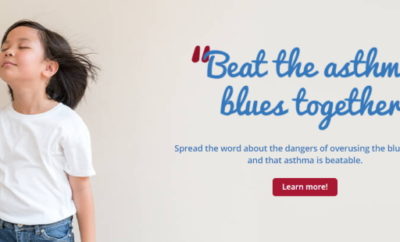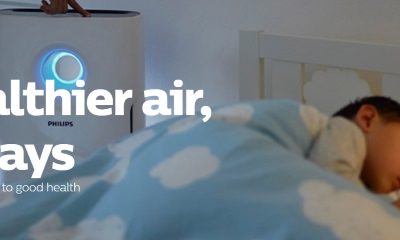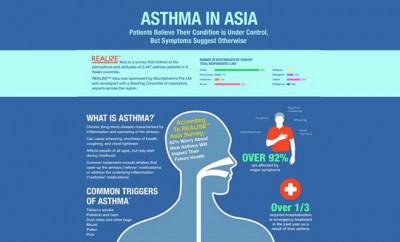
Health x Wellness
Beat the Asthma Blues with the Asthma & Allergy Association Singapore
The Asthma & Allergy Association Singapore urges those suffering from asthma to reduce their reliance on the blue inhaler in order to live life to the fullest
The Asthma & Allergy Association (AAA) and the Healthy Lung initiative launched Beat the Asthma Blues programme in May 2020 with a mission to inform asthma sufferers to reduce their reliance on the blue inhaler.
According to a 2010 National Health Survey by the Singapore Ministry of Health, asthma is a chronic inflammatory airway disease that affects approximately 5 percent of adults and 20 percent of children in Singapore. Symptoms of asthma can affect quality of life including depression.
However, based on a report by the Global Initiative for Asthma (organisation), using the blue inhaler more than three times a week is an indication that asthma is not under control. It can people at risk of an asthma attack while masking the worsening symptoms.
Overcoming asthma to live a fulfilling life in Singapore
The AAA commissioned a Beat the Asthma Blues report in May 2021. Key findings include:
- Despite global guidelines recommending against using the blue inhaler by itself to control the condition, at least 6 out of 10 (62 percent) of respondents with asthma believe this is the best way ‘to keep on top of the condition’.
- More than 2 out of 5 (42 percent) respondents reported that they had attended hospital in the last 12 months because of asthma symptoms, with almost 1 in 5 (19 percent) adults reporting having been to hospital repeatedly during that period.
- Almost three quarters (73 percent) of respondents had experienced symptoms during the last four weeks. The most common symptoms reported by these adults with asthma were wheezing and shortness of breath.
- 60 percent of adult respondents have woken up at night due to their symptoms in the same period.
- One in three (32 percent) adult respondents reported feeling down because of their asthma.
According to the AAA, the report suggests that there is not sufficient awareness among some patients of the potential risks of overusing the blue inhaler.
Asthma is a chronic respiratory condition that needs to be managed well. A recent survey showed that almost two thirds (62%) of adult respondents with asthma think using the blue inhaler is the best way to manage their asthma2. However – while the blue inhaler helps to deal with symptoms of asthma like wheezing and breathlessness, it does not manage the underlying cause of asthma attacks which is best treated with preventer inhalers (also known as controller inhalers).
Dr Adrian Chan, President of the AAA Singapore.
2021 Beat the Asthma Blues video shares stories by Singapore personalities about living with or managing a loved one with asthma
Continuing on their mission to inform and educate those with asthma, AAA has added a new film to their programme this year.
The film features local personalities who have asthma or have a loved one with asthma sharing their experiences. The video shares tips for good asthma management, and helps explain the context and risks about relying too much on the blue inhaler.
The three personalities featured in the video include:
- Singer and entrepreneur Taufik Batisah (@taufikbatisah), whose wife has asthma
- Content creator and entrepreneur Ang Qiuting (@bongqiuqiu) who has asthma
- Preeti Nair (@preetipls), local comedian and content creator who was featured together with her mother – Sarah Nair, who has asthma.
To understand their reliance on the blue inhaler, those with asthma can can take the Blue Reliever Reliance test here and share their results with their doctors. This can help open the conversation between themselves and their healthcare professional about managing their condition.
They should not stop or change asthma medication without consulting their healthcare professional.
Feature image credit: Asthma & Allergy Association Singapore









